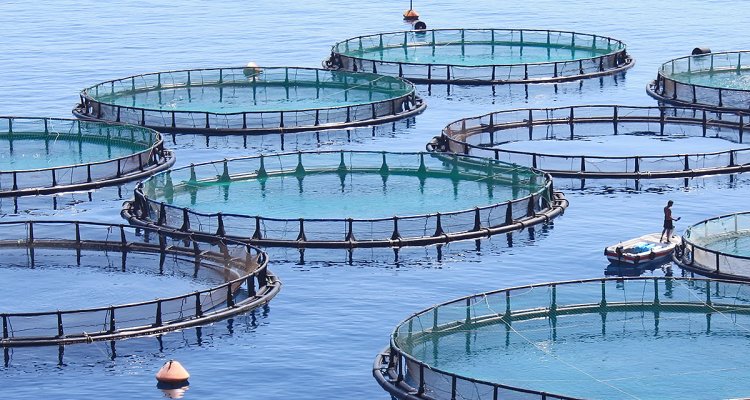
Aquaculture Research
Aquaculture refers to all forms of culture of aquatic animals (including finfish, shrimp, mussels, etc) and plants such as seaweed in marine, brackish, or fresh waters. Aquaculture refers to net pens in Norwegian fjords holding thousands of Atlantic salmon but also to freshwater pond cultures in South-East Asia holding tilapia, or shrimp. At the same time, on-land recirculating aquaculture systems, or RAS, are massively transforming some of our current day aquaculture industry practices. While society drives us to think about more sustainable, circular approaches for the future. We try to contribute to relevant innovations by studying fish and shellfish nutrition and health in preferably, circular aquaculture systems, be it recirculating or ponds.
-
prof.dr.ir. GF (Geert) Wiegertjes
studies physiological keys to fish health. Enhancers of immunity can be incorporated in fish feed to help battle the development of antimicrobial resistance. Shortly after exposure to such stimuli, innate immune responses can be primed, but innate immune cells may not return to basal levels, their physiology remaining enhanced through long-term reprogramming. -
dr. F (Fotini) Kokou
studies microbial communities and their interactions with fish in aquaculture systems. Microbes are essential for proper animal functioning, assisting in host digestion and battling opportunistic pathogens. At the same time, microbial populations within aquaculture systems are important for maintaining high water quality for fish health and welfare. Understanding the factors steering microbial communities is important to promote fish performance and disease control. -
dr.ir. RM (Roel) Maas
works as an aquaculture researcher with a focus on RAS and the effects thereof on culture animals. Fish in aquaculture (eco)systems are critically dependent on water quality parameters such as dissolved oxygen, carbon dioxide and different nitrogen species, parameters influenced by host-microbe interactions. Central to aquatic ecosystems functioning is management of the main biological processes affecting water quality. -
dr.ir. HM (Henrice) Jansen
works on the reciprocal interactions between aquaculture and the environment aiming to increase the sustainability of aquatic food production. Within her research there is special reference to Low Trophic Aquaculture, eco-physiological studies and evaluation of ecosystem services and environmental trade-offs (e.g. carrying capacity and biodiversity). She works closely with Wageningen Marine Research on shellfish cultivation, and with the Institute of Marine Research (Norway) on circular production strategies such as Integrated Multi-Trophic Aquaculture. -
dr. KA (Kazi) Kabir PhD
Guest employee
-
dr.ir. JW (Johan) Schrama
studies diet composition, including protein and carbohydrate content, energy, but also physical properties of fish feed because all are crucial determinants of the fish’ metabolism. Fish and shellfish in aquaculture are heavily dependent on nutrition, while regulation of feed intake and waste production determine dissolved oxygen and thus critically influence growth performance and health. -

dr. MCJ (Marc) Verdegem
developed a ‘nutritious ponds’ concept based on stimulating microbial-mediated use of wastes, where fish can be harvested at high but sustainable rates without causing unacceptable environmental damage. This concept aligns very well with the interests of WorldFish, an international (CGIAR) research organization that harnesses fisheries and aquaculture to reduce hunger and poverty. -
dr.ing. KT (Killian) Chary
studies aquaculture/environment interactions at different scales (individual fish, farm, ecosystem, global) to quantify potential direct and indirect environmental impacts, to identify the main sources of energy/resource use and emissions of pollutants, and to propose technical or management measures to mitigate these impacts. A good understanding of these interactions is a necessary step to better integrate aquaculture activity in its wider ecosystem and to guide its sustainable development. -
dr. M (Maria) Forlenza PhD
is a comparative immunologists with a strong interest in fish immune responses to pathogens. She is particularly interested in nucleic acid-based vaccines and recombinant viral vectors, and in translating fundamental knowledge into experimental vaccines that can be administered by mucosal routes. -
dr.ir. MAJ (Marit) Nederlof
Post-doc shrimp nutrition and performance
- Unfortunately, your cookie settings do not allow videos to be displayed. - check your settings
- Unfortunately, your cookie settings do not allow videos to be displayed. - check your settings
- Unfortunately, your cookie settings do not allow videos to be displayed. - check your settings